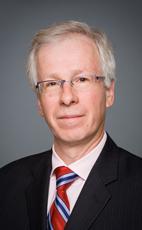Mr. Speaker, the hon. member quoted a well known French political figure, Michel Rocard, to support her argument. I am always pleased to hear the extraordinary variety of points of view that come to us from that great pluralistic democracy, the Fifth French Republic, which proclaims itself an indivisible whole, and whose Prime Minister was recently quoted as finding the very idea of holding a referendum in Corsica on the future of Corsica ridiculous.
The truth is that the Canadian government's position on the right to secede is more conciliatory than that of many other western democracies. It is not saying that secession is always forbidden, but rather that a decision such a secession by one province cannot be made unilaterally. It must be done with the consent of the parties concerned and within the law. That was the position of the Government of Quebec and of the Government of Canada in 1980, and it is still the position of the Government of Canada.
Mr. Bouchard needs to get hold of himself. Instead of insulting the East Germans and the North Koreans who lost their lives in escaping totalitarian regimes, instead of saying that Canada is not a real country, he ought to keep in mind that, in free societies, in democratic and peaceful societies, the usual way to arbitrate disagreements and to settle conflicts is to plead one's case before the courts and to recognize the right of one's adversaries to do likewise.

